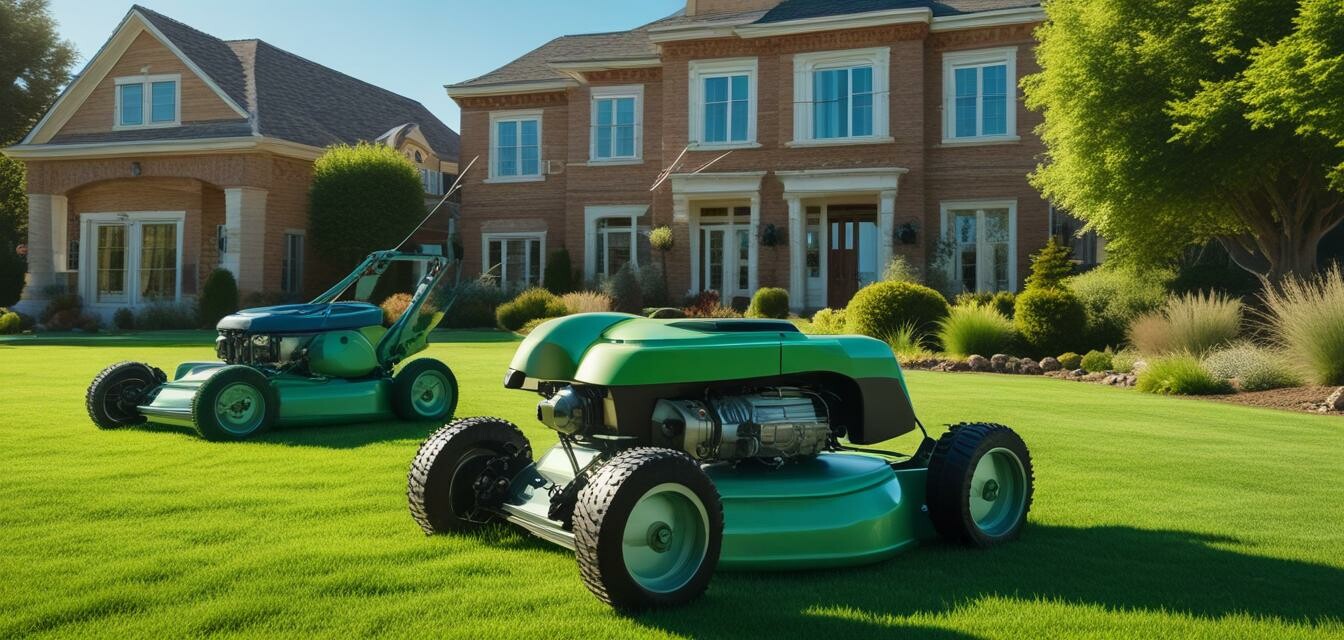
Predicting Lawn Care Trends for the Next Decade
Key takeaways
- The shift towards eco-friendly, battery-powered mowers will continue to grow.
- Robotic mowers are becoming more affordable and user-friendly.
- Zero-turn mowers are in high demand for commercial landscaping.
- Smart technology integration, like app controls, is becoming standard.
- Consumer preferences dictate design and functionality shifts in lawnmowers.
Lawn care is evolving rapidly, and as homeowners become more engaged in sustainable practices, the lawn mower industry is reflecting these shifts. In this article, we will delve into the future of lawn care over the next decade and explore the trends that are shaping this evolution.
Current trends influencing lawn care
To understand the future, we need to examine the current trends that are making a significant impact on how we maintain our lawns. Here are some of the most notable trends:
| Trend | Description |
|---|---|
| Eco-friendly options | Increased interest in battery-powered and electric lawnmowers to reduce emissions. |
| Robotic mowers | Automated mowers that require minimal human intervention, gaining popularity. |
| Smart technology | Integration of app-based controls for monitoring and managing lawn care. |
| Zero-turn mowers | Enhanced maneuverability and efficiency for professional landscapers. |
Anticipated innovations in lawnmowers
As we look to the next decade, several innovations are expected to change how lawn care is approached:
- Enhancements in battery technology: Longer battery life and shorter charging times will make battery-powered mowers more efficient.
- Advanced navigation systems: Better sensors and GPS integration in robotic mowers will improve their functionality and usability.
- Environmentally friendly materials: There's a growing push towards sustainable materials in manufacturing lawnmowers.
- Increased customization: Consumers will have more options for customization to suit their personal styles and needs.
Consumer preferences shaping the market
Consumer choices greatly influence the design and technology that manufacturers prioritize. Here’s what we are observing:
| Preference | Impact on Mowers |
|---|---|
| Low maintenance | Manufacturers are focusing on creating hassle-free options, particularly in robotic mowers. |
| Affordability | More companies are entering the market with budget-friendly options that don’t sacrifice quality. |
| Multi-functionality | Mowers that offer multiple features, like mulching and bagging, are in higher demand. |
| Smart features | Integration of technology for ease of use is becoming a critical selling point. |
Future challenges in lawn care
While the future looks bright, some challenges may hinder progress:
- Technology adoption: Older generations may be slow to embrace new technologies, impacting the sales of smart mowers.
- Supply chain issues: Continued disruptions could affect product availability and pricing.
- Market saturation: As more models become available, differentiation will become increasingly crucial.
Conclusion
The trends and innovations in lawn care, particularly in mowers, are set to shape the next decade. From eco-friendly options to smart technology, staying ahead of these trends will not only enhance the lawn care experience but will also contribute towards a more sustainable future. Be sure to explore our buying guides for the best insights on selecting the right mower for your needs.
Tips for adapting to lawn care trends
- Research eco-friendly mowers that fit your lawn care routine.
- Consider the long-term savings of investing in high-quality equipment.
- Stay informed about technological advancements in lawnmowers.
- Join local landscaping groups for tips on maintaining your lawn effectively.
Pros
- Growing options for eco-friendly mowers.
- Advancements in technology improve efficiency.
- Accessibility in terms of pricing.
- Robotic mowers reduce the time spent on lawn care.
Cons
- Potentially high upfront costs for advanced models.
- Learning curve for integrating smart technology.
- Challenges in maintenance and repairs for sophisticated devices.
Explore further
To dive deeper into specific types of mowers, check out our categories: